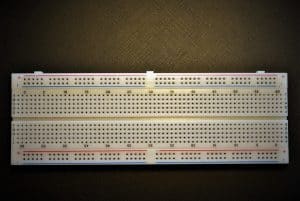Space Agriculture Specialists: Cosmic Farming Pros
With over 7.8 billion people inhabiting the Earth today, the concept of space agriculture has come to the forefront in our search for sustainable food resources. As our population continues to grow, so does the need for alternative means of producing food. This is where space agriculture specialists come in, utilizing innovative technologies to enable us to grow crops in the vastness of outer space. From growing plants on the International Space Station to cultivating crops on Mars, these cosmic farming pros are pioneering a new era in agriculture. Let’s take a closer look at how space agriculture specialists are revolutionizing the way we grow and harvest food in the final frontier.
The Rise of Space Agriculture Specialists
In the past, the idea of growing crops in space seemed like something straight out of science fiction. However, with advanced technologies and the growing need for sustainable food sources, space agriculture has become a reality. Companies like SpaceX and Blue Origin have been at the forefront of developing reusable rockets and spacecraft, making it easier and more affordable to send equipment and materials into space. This has opened up new opportunities for farming in orbit and beyond.
The Challenges of Cosmic Farming
Sure, growing crops in space may sound like a futuristic and romanticized idea, but it comes with its fair share of challenges. First and foremost, the lack of gravity poses a major hurdle in creating an environment suitable for plant growth. In the microgravity environment of space, plants cannot rely on the Earth’s gravitational pull to guide their growth, leading to altered root and plant structures. This requires space agriculture specialists to develop innovative solutions to mimic the effects of gravity in space.
Another major challenge is the lack of resources. In space, there is no soil, no rain, and no sunlight like we have here on Earth. This means that space agriculture specialists must rely on artificial lighting, hydroponic systems, and specialized nutrient solutions to successfully grow crops. With limited space and resources, it’s a race against time to find the most efficient and sustainable ways to cultivate crops in space.
The Advantages of Space Agriculture
Despite the many challenges, the benefits of space agriculture are worth the effort and investment. One major advantage is the potential for interplanetary travel. As we strive to explore and colonize new worlds, we will need a sustainable source of food for astronauts and future inhabitants. By developing and perfecting space agriculture techniques now, we can pave the way for future missions and ultimately, the colonization of other planets.
Space agriculture also offers unique research opportunities. By studying the effects of microgravity and different environmental conditions on plant growth, we can gain valuable insights into how plants adapt and survive in extreme environments. This knowledge can have applications on Earth as well, helping us improve our own farming methods and techniques.
The Future of Farming
While still in its early stages, the potential for space agriculture is immense. As technology continues to advance, and more private companies and government agencies invest in space exploration, we can expect to see significant progress in the field of cosmic farming. From growing fresh produce for astronauts aboard the ISS, to developing self-sustaining colonies on other planets, space agriculture specialists are leading us into a new era of farming.
In conclusion, space agriculture specialists are at the forefront of revolutionizing the way we grow and harvest food. With their innovative solutions and determination to overcome challenges, they are paving the way for a sustainable future, both on Earth and in space. As we continue to push the boundaries of what is possible, we can only imagine the incredible advancements and discoveries that await us in the realm of space agriculture.









